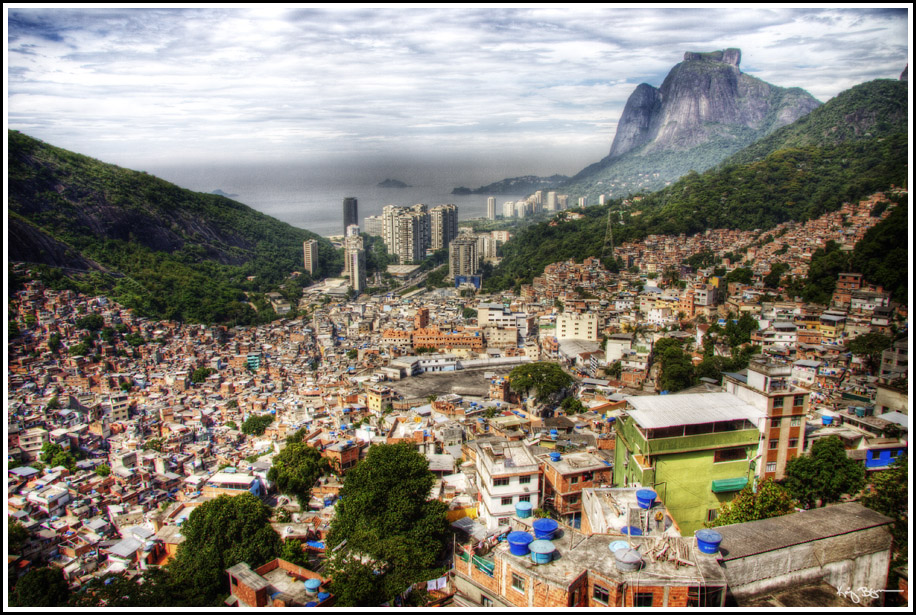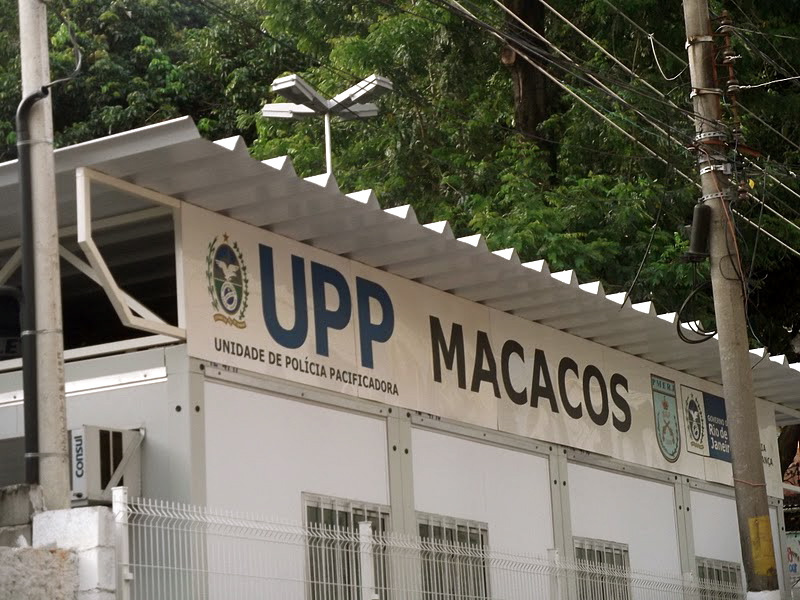
Last weekend, the Peacekeeping Units (UPP) of the city of Rio de Janeiro faced perhaps their most difficult task in the pacification process, the occupation of the Rocinha community.
Rocinha is both the largest and arguably one of the most dangerous favelas in the city. It is also one of the most developed in terms of infrastructure and trade, boasting several banks, supermarkets, pharmacies, its own TV channel and even, at one time, a McDonalds. It is estimated that between 150,000 and 300,000 people live there.

The Rio de Janeiro UPP projects were launched in 2008 in an attempt to combat the organised crime that has dominated these communities for almost 50 years. The police's Special Operations Battalion (BOPE), made infamous in the Tropa de Elite/Elite Squad films, enter the favela first with the support of other military police squadrons, apprehending well-known drug kingpins and their right hand men. Their job is to secure the initial pacification of the favela, symbolically placing a Brazilian flag at the highest point in the community as a sign of the end of the first stage of the operation.
The next stage is the establishment of a 'Unidade de Policía Pacificadora' (UPP) - the peacekeeping unit. A base is created inside the community and for the first time in the history of favelas in Brazil, police are actually integrated inside the favela, carrying out daily patrols and becoming involved with community activity.
It took a year of planning before 'Operation Shock Peace' was carried out in Rocinha. Initially tensions were high; tanks, guns and professionally trained military police squadrons have all been part of the day-to-day life of these communities in the past, the outcomes rarely without casualties.
The introduction of the UPP, however, has proven to be less destructive than originally thought.
One favela resident I spoke to explained that it was already evident that Rocinha would be taken relatively peacefully. 'The establishment of other UPPs that led to the fleeing of so many 'commanders', has meant that the drug trafficking network is severely weakened', Paulo Geovane from Morro dos Macacos explained. The arrest of number one drug lord Antônio Bonfim Lopes a few days before 'Operation Shock Peace', dealt a further blow to the traffickers. Rocinha was taken in just 90 minutes and not one shot was fired.
This marks a further success in the war on drugs in Rio, yet there is still so much to be done. The entry of the police into these communities whilst ground breaking, is only the first phase of a much more complicated strategy.
If the past is anything to go by, residents have every reason to doubt the motives of the police; struggles continue as some UPPs are accused of abuse of power. Yet the stories are not only of scepticism.
In the North Zone of the city, Morro dos Macacos has been going from strength to strength after the introduction of the UPP in November last year. One of the residents and founders of local social I.T. project 'Dinamicoop', tells me about the initial hardships of dealing with the UPP in the community.
'In the beginning it was really hard, no one came anywhere near the centre for fear that they'd be seen by one of the gangsters', says José Lins who has been working closely with the UPP. 'They didn't want to seem as if they were supporting the BOPE, and since their base was in our building, for weeks no one came'.
But things got better, he tells me. The past year has seen dramatic differences for the community. Lampposts are being erected all over the favela, for example. Dodgy copper wires tied shabbily to the lamppost on the main roads provide electricity in these communities but with the introduction of the UPP the state has also begun to officially provide basic necessities, such as electricity.
The UPP in Morro dos Macacos - Photo by Teresa Gonçalves
The UPPs have also been paramount in supporting other social projects. The building where Dinamicoop is located has been transformed from a run down hospital with a hand full of computers to a vibrant and colourful community centre. They recently won funding for three social projects in a competition set up by the federal government. 'Baile funk' weekends, product of the drug trafficking era, have been largely replaced with 'Black Soul Charme', a project aimed at introducing the younger generation to music from the 60s and 70s.
Resident Walter Luiz, who came up with the concept for this night, believes that music is key in bringing people together, 'If we can get children and young people away from the ideas that the language of baile funk imprints upon them about their sexuality and other things they shouldn't even be thinking about at that age, then we are a step closer to healing our community'.
The introduction of the UPP has undoubtedly been paramount in providing security for Morro dos Macacos. Gone seem to be the days where gangs held posts on every corner; where kites were flown to communicate with dealers and where to walk around freely in the community for an outsider was an impossibility. But the work is far from done.
To ensure that these successes continue, example must be taken from the way the UPP have integrated here, working with the community for the success of their installation. Security must be coupled with social projects and the betterment of living conditions. Whilst the police must be allowed to do their job, they must also be kept in check so that they become a trusted entity rather than something to fear as they have been in the past. Furthermore, the importance of continuity is absolute. The peacekeeping units as well as the social development projects now underway in some communities must continue with the full vigour which that they have started with.
Many still remain sceptical about the future of their communities once the drug traffickers have been expelled. Trust is key for any successful venture, if Rio wants to win this fight, then they must be able to secure this above all else.

